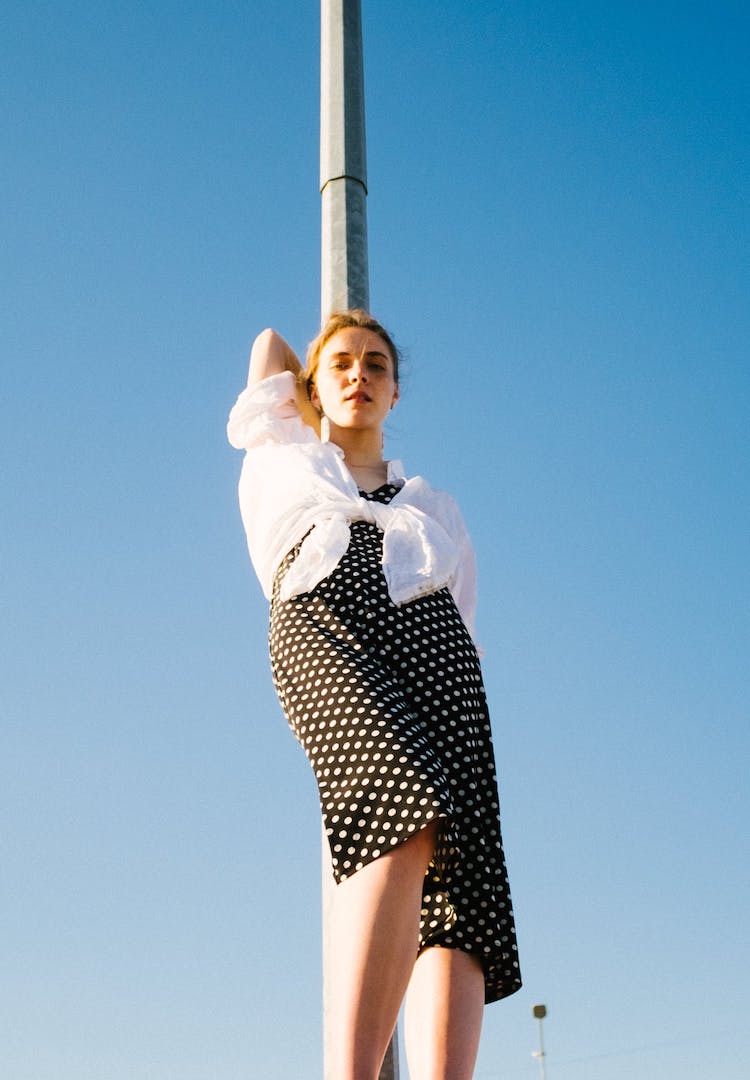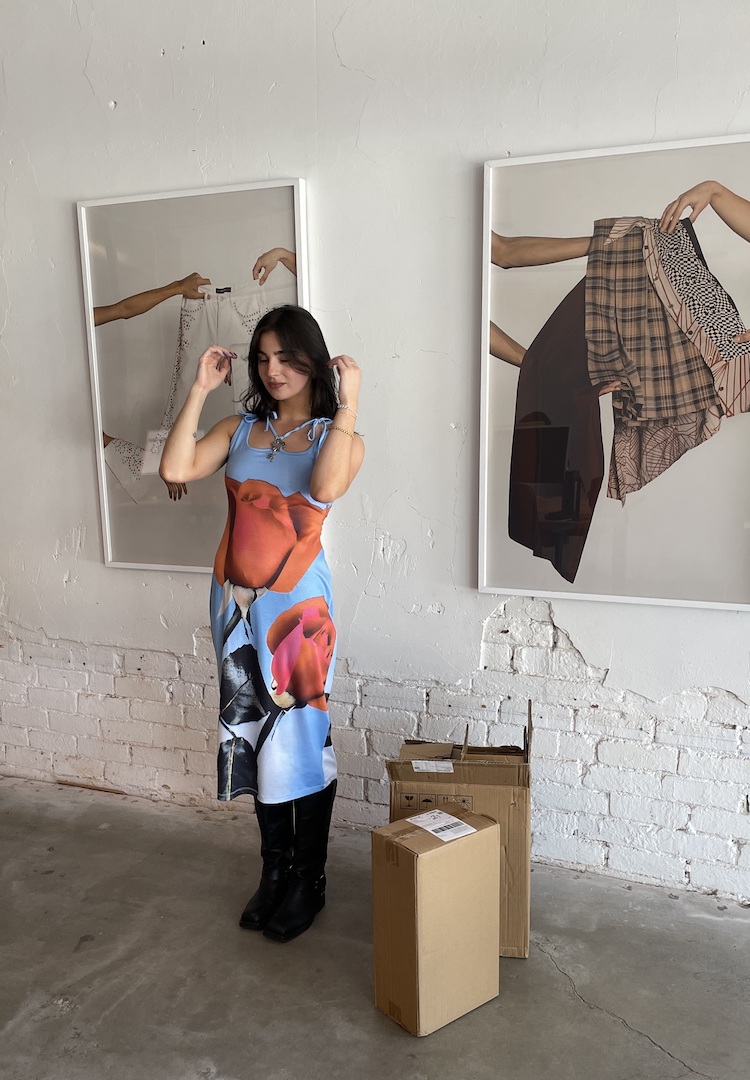Fast fashion isn’t going anywhere until we raise the minimum wage
WORDS BY Nina Miyashita
“How can someone put sustainability first when they can barely afford a roof over their head and food on the table?”
Not too long ago I overheard a woman say “I got it from Zara” in response to a query about the origin of her dress. She went bright red, mumbling something about how she always uses reusable coffee cups, though, and not to judge her too harshly. Money was just a bit tight. I get it – in recent times, admitting that you still purchase fast fashion has, in some circles, become ethically condemnable.
In the current consumer culture, there has been a pushback against fast fashion and a huge push for shopping with sustainability in mind (think supporting local labels and opting for eco-friendly materials).
For more fashion news, shoots, articles and features, head to our Fashion section.
It seems obvious to say that this shift in thinking is due, in large part, to our generational awakening to the climate crisis. We are more aware than ever of the individual choices we make in the pursuit of the salvation of our planet. And this is, undoubtedly, a good thing.
But in the realm of fashion, a high-quality garment with impressive ethical credentials tends to set the consumer back much more than the items lining the racks of Kmart and H&M would. At the same time, the cost of living has been soaring for the last decade and the minimum wage hasn’t been rising along with it.
The Reserve Bank of Australia forecasts that inflation is only going to continue to climb, and according to the Australian Council of Trade Unions, it would take legislative changes to really address national wage growth. As a result, varying degrees of modern-day poverty are ravaging many communities in Australia, and it doesn’t look like this will be changing anytime soon.
So where does that leave us with our shopping choices?
You could look at it this way; sustainable fashion is all about looking ahead and making choices with the future in mind. Fast fashion, by comparison, would be akin to a kind of survival mode, for the people who can only afford – both literally and figuratively – to think about how to get through today.
The question is then, how can someone put sustainability first when they can barely afford a roof over their head and food on the table, let alone setting aside money for sustainable clothes? Unfortunately, it’s not just the low price points that make fast fashion so popular and accessible. Secondhand shopping is a similarly budget-friendly alternative but it requires hunting out your size, something fast fashion makes easy, and tailoring clothes to fit can be a challenge if you’re time-poor due to work and other commitments.
Fast fashion is aptly named for more reasons than one. It’s been marketed, priced and retailed to suit those who have less, and it’s certainly good at doing so. So while we’re stuck here between a rock (our ethics) and a hard place (our bank statements), we might start to wonder instead, is the problem perhaps that fast fashion exists as an option at all? How many of the myriad issues it causes are the consumer’s responsibility, as opposed to the manufacturer’s?
Katrina Caspelich is the Director of Marketing for Remake, a global advocacy organisation fighting for a more equitable fashion industry. Speaking to Katrina, it’s clear she and Remake are inclined to put more of the burden of responsibility on the manufacturers themselves, as opposed to the consumers who have been financially forced into relying on them.
“While the push for brands and consumers to live more sustainably has become increasingly important in recent years, this has nonetheless competed against a backdrop of rapidly increasing production and decreasing wages for garment workers,” she says.
“Even with consumer consumption at such high levels, customers simply aren’t buying enough of what big brands are producing. Virgin textile generation (the process of making new fabrics) increased ten times between 1960 and 2018. The industry produces more clothes than we will ever need. This is not just a problem with individuals overconsuming, but a wider cultural issue of unnecessary overproduction for the sake of profit.”
The centrality of ‘profit’ in the fast fashion issue reveals the vicious cycle this industry relies on. The less people are paid, the more they have to turn to fast fashion, and the more they shop there the more money the manufacturers make, the more cheap labour they can employ, and the more garments they can produce. And on and on and on.
A new way of thinking about fashion
While searching for ways out of this rabbit hole, I found a whole other kind of perspective through Sara Arnold, the Co-founder of Fashion Act Now, an activist organisation focused on degrowth and the decolonisation of fashion. Sara is an environmental activist who has been able to share her thoughts on sustainability through publications like Vogue and Highsnobiety.
“[Fashion Act Now] don’t believe in sustainable consumption as the answer to the environmental crisis,” she tells me. In all honesty, this threw me, as sustainable consumerism was the answer I thought we had all arrived at. She goes on to say that she thinks that true sustainability doesn’t have to be a luxury. “Those people that live sustainably are not those who have [the] socioeconomic privilege. Quite the opposite.”
In saying this, Sara reminded me that often those without socioeconomic privilege come from non-White cultural backgrounds and it’s these communities who have a deep and rich history of caring for the environment.
Perhaps, it’s these traditional practices we should be returning to, as well as cultivating a new perspective on what ‘sustainable’ fashion actually is. “Sustainability requires us to treasure what we already have, either personally or collectively, not to purchase expensive, so-called ‘sustainable fashion’,” Sara finishes.
So maybe we buy less, or not at all, or we avoid certain clothing stores as much as we can. Maybe we focus on mending, sharing and upcycling, and we support local makers. But there are some big hurdles that the economy, the fashion industry and the social institutions that uphold all of it have to face first before we can say goodbye to unsustainable fashion forever. And god, won’t that be a good day?
This article was originally published on August 21, 2022.
For more on fast fashion and the minimum wage, try this.










